Search Results
Showing results 1 to 20 of 29
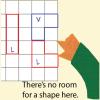
Fill It Up
Source Institutions
Players take turns adding shapes made of three squares to a grid. They try to fit their shapes on the grid in a way that blocks the other player.
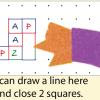
Dots to Squares
Source Institutions
As learners play this strategy game, they develop understanding of squares, area, and perimeter. On each turn, a player draws a line between two dots next to each other on the grid.
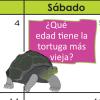
Calendarios para cualquier año
Source Institutions
Este Web site contiene links a 12 calendarios (12 meses). Cada mes contiene actividades sobre matemáticas.
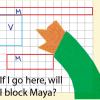
Twelve at a Time
Source Institutions
As learners play this game, they build skills in area, perimeter, multiples and factors. They take turns making rectangles with 12 squares on the grid.
Shape & Solid Exploration
Source Institutions
In this game, learners use clues to identify mystery shapes. Use everyday objects (like from the pantry) as the shapes.
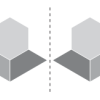
Reflections
Source Institutions
In this activity, learners play a game and use pattern blocks to explore mirror images and reflection.
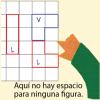
Rellénelo
Source Institutions
Los jugadores toman turnos para añadir figuras de tres cuadrados a la cuadrícula. Intenten encajar sus figuras en la cuadrícula de modo que bloquee al otro jugador.
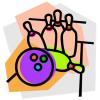
Strike 'em Down & Add 'em Up!
Source Institutions
In this activity, reuse two-liter bottles to create bowling pins. Learners practice math skills and develop a concept of verifying answers, while bowling and keeping score.
What's in the Bag?
Source Institutions
In this activity, young learners use their sense of touch rather than sight to identify a mystery object in a bag. Learners take turns acting as "peekers" and "sensers" throughout the game.
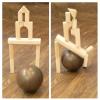
Block Bowling
Source Institutions
In this activity learners will build structures out of blocks and then roll balls to try to knock them down.
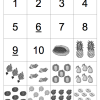
Memory Match
Source Institutions
In this classic memory game (on pages 37-45 of PDF), learners turn over tiles to reveal images on the back.
Size Them Up: Learning About Volume and Capacity
Source Institutions
In this activity, learners will put a set of containers in order by capacity. Would the tallest container hold more or less water than the wide, short one?
Mystery Jars: Make Your Own: Estimating and Counting
Source Institutions
Learners make a counting/estimating jar to exchange with friends or bring home.

Circle Logic
Source Institutions
This is a deceptively simple game to teach strategy, planning, and pattern analysis. In this game, learners take turns removing tokens from a board, and develop a plan to take the last piece.

Ramp it Up
Source Institutions
In this activity, learners will build ramps and test how the laws of physics apply do different objects. Learners will explore physics and cause and effect through this activity.
Narrow It Down: Asking Yes-No Questions
Source Institutions
In this activity, the learner asks yes-no questions to identify a secret object (similar to Twenty Questions). This game is easy to adapt for different ages and different kinds of contexts.
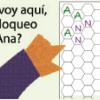
Bloqueo
Source Institutions
Jugando a este juego, los chicos desarrollan habilidades de lógica, geometría, y visualización espacial. Los jugadores empiezan con una red de hexágonos vacía.
Any Year Calendars
Source Institutions
This PDF contains 12 calendars (12 months). Each month contains activities about math. Things to do on familiar holidays (like July 4), less common holidays (like Backward Day), and any day.
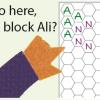
Touch and Go
Source Institutions
As learners play this game, they develop logic, geometry, and spatial visualization skills. Players start out with an empty hexagonal grid.
Numbered Heads
Source Institutions
In this math activity, learners play a game and use a variety of strategies to solve a hidden number problem (or missing factor). Learners practice their number and operations skills.
